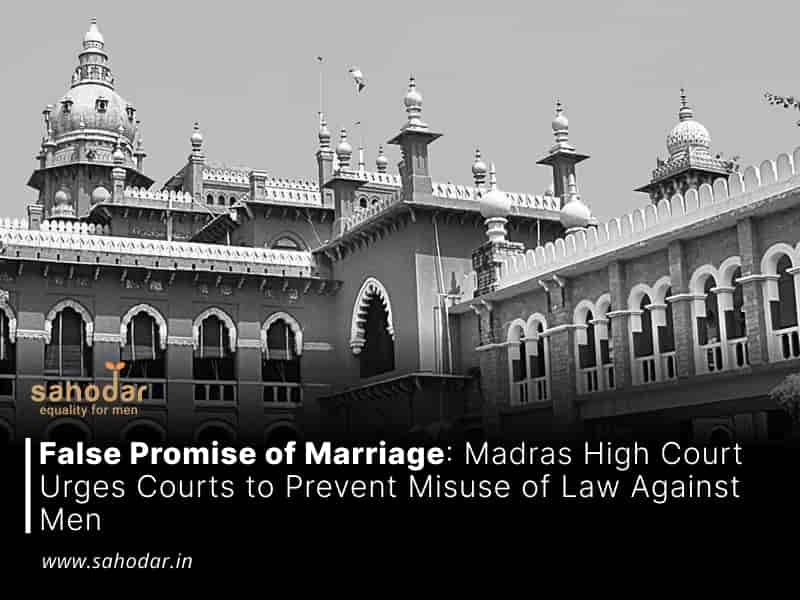When dealing with cases of sex on false promise of marriage, courts have a two-fold duty to not just protect the women, but also to ensure that innocent men are not victimized by women folk, the High Court said.
The Madras High Court emphasized that courts have a responsibility to ensure that innocent men are not victimized in cases involving rape on the promise of marriage.
The Court highlighted that in cases of sex based on false promises of marriage, courts must fulfill a dual duty: to protect women and to ensure that innocent men are not victimized by “malicious women.”
On June 21, Justice M. Dhandapani overturned the conviction of Rahul Gandhi (not to be confused with the Congress leader Rahul Gandhi), who was charged under Sections 375 (rape), 376 (punishment for rape), 90 (consent given under fear or misconception), and 417 (cheating) of the Indian Penal Code (IPC).
The Court stated that the victim’s testimony alleging that Gandhi had sexually assaulted her under a false promise of marriage was not credible in this case.
Additionally, the Court noted that while cases of sexual assault against women are increasing in India, it is the courts’ duty to “separate the grain from the chaff” when analyzing evidence.
“However, it cannot be lost sight of that under the pretext of false promises, women are wrongly utilised in various acts, including the act of eternal submission to satisfy the carnal and physical desires of the opposite gender, even with their consent and in many cases against their wish, either by sugar coated words or by brute force. But not always, it is to be stated that, it is only the male who misuse the women folk, but in the legal conundrum, vicious persons belonging to the female folk, do misuse the law to their advantage and, therefore, in cases of such nature, the duty cast on the court is two-fold, not only to see that women are not misused but equally, the law is not misused against the male folk as well,” the High Court said.
The case against Gandhi involved allegations that he had coerced a woman he loved into having sexual intercourse with him by promising to marry her.
However, the High Court observed that at the time of the alleged incident, Gandhi was already married, and the victim was aware of this fact.
The Court concluded that there could be no misconception of marriage in this case since the victim knew about Gandhi’s existing marriage.
Additionally, the Court found no evidence to suggest that Gandhi knew the victim was engaging in the sexual act under the misconception that he would marry her.
Given that the victim was a consenting party to the sexual act, the Court ruled that Section 375 of the IPC was not applicable and allowed Gandhi’s appeal.

